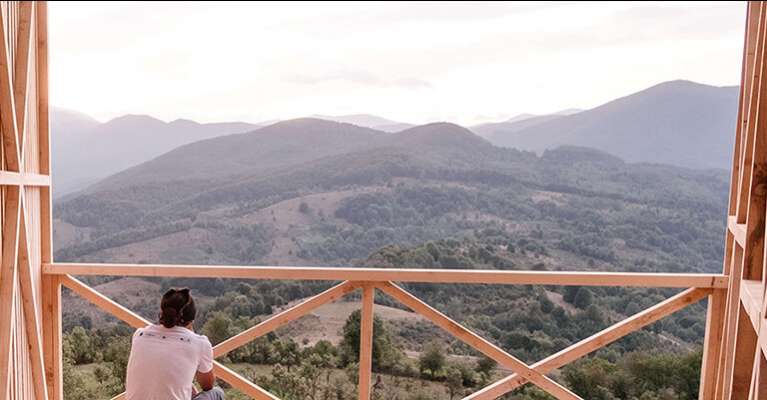|
WWF-CEE is appalled by the escalating Russian aggression in Ukraine, which violates international law. The destruction of the Kakhovka Hydroelectric Power Plant dam is a disaster, and is yet another tragedy for residents of the region and Ukraine as a whole. The dam breach and flooding is in an area affected by the war, therefore, access for collecting reliable information to assess the extent of the damage is extremely limited if not impossible at this time. Nevertheless, it is clear that the consequences for people and nature are devastating and on a huge scale. We call on the international community, and specifically the International Criminal Court, to assess the destruction of the Kakhovka dam and other environmental crimes and to bring those responsible to justice.
Andreas Beckmann, CEO, WWF Central and Eastern Europe |
Ukraine needs a sustainable, climate and nature - positive reconstruction to ensure long-term security
While the end of the war is still unknown, it is clear that Ukraine will need the largest reconstruction plan in Europe since World War II.
“Ukraine: a sustainable economic recovery for people and nature” is a report that makes the case why post-war reconstruction of Ukraine must be climate- and nature-positive, and provides recommendations on how this can be done to support the people and government of Ukraine.
WWF has been active in the area since the late 1990s, but WWF-Ukraine has been an official member of the WWF-CEE network since its foundation in 2020.
Conservation Facts:
Freshwater
- Ukraine has its share of the Danube Delta/Lower Danube, where some of WWF‘s most successful wetland restoration projects were happening.
Forests
- Virgin and High Conservation Value Forests in the Carpathian Montains, including the ancient beech forests World Heritage Site.
Wildlife
- The Carpathian mountains are also home to Large carnivores – bears, wolves and lynx.
- The Ukrainian Lower Danube is one of the very few regions still holding viable, naturally reproducing Danube sturgeon populations.
Climate & Energy
- Highest intensity of energy use in Europe.
- Security of energy supply is a key issue driving energy efficiency and renewables.
Governance
- Ukraine is a party to the International Commission for the Protection of the Danube River (ICPDR) and the Carpathian Convention as well as the Antarctic Convention.
IMPACTFUL PROJECTS:
- 2017-2023 Old-growth and High Conservation Value Forests in the Carpathian Montains: WWF-Ukraine initiated the establishment of 68 forest natural monuments with the total area of 9991,1 ha within the Trans-Carpathian and Ivano-Frankivsk Regions to ensure the protection of the oldest Ukrainian Carpathian forests. Another 18 forest natural monuments with an area of 727,9 hectares have been created in the Chernivtsi region on sites previously identified by the WWF-Ukraine. After two years of intense lobbying and research, WWF-Ukraine efforts have been successful and the area of protected old-growth forest nature monuments in Ukraine has increased 100-fold. To date, more than 25 000 ha of virgin, quasi-virgin and natural forests within the Carpathians have received confirmation of their status from the local forestry enterprises.
- 2017-2022 Large Carnivores: WWF-Ukraine provides a photo traps network on the territory of protected areas, forestry, and hunting farms (Carpathians, Polissya) for monitoring rare large carnivores, creating recommendations for large carnivores monitoring in the Carpathians and Polissya and organizing training on modern methods of scientific monitoring for representatives of nature protection institutions and forestry. WWF-Ukraine also developed Lynx and Bear National Action Plans that can improve the protection of these rare species.
- 2004-2010 Danube Delta: WWF-Ukraine restored the islands of Yermakov (2010) and Small Tataru (2004) in the Danube region. Both were dammed, drained and used for agriculture, which practically turned them into a desert. Restoration of the islands has brought back wetlands, wildlife, and tourism.
- 2020 - Building capacity of local communities: WWF-Ukraine is active in building capacity of local communities to protect forests and collaborate with forest enterprises as a step towards sustainable forest management. Forest management in pilot territories will be performed in a more sustainable way considering environmental and social issues as well as active participation of local stakeholders.
- Forest Policy: WWF-Ukraine has established a multi-stakeholder platform for elaborating important points which have to be included in goals and principles of future forest policy. The main goal of the platform is to organize an efficient dialogue and cooperation between different stakeholders in Ukraine in order to elaborate the joint vision of the principles and goals of the forest policy, which equally consider economical, ecological and social issues in forestry.
- Ecological Corridors:
- 2017-2018 WWF made recommendations to the National Transport Strategy of Ukraine 2030 on the greening of transport infrastructure and the need to create ecological crossings for wild animals in its planning.
- 2019-2022 Development of "Scientific and methodological recommendations for the preparation of the report on environmental impact assessment in road construction", which helps developers, professionals, and scientists to implement a comprehensive approach to risk assessment in road construction.
- 2020-2022 Development a methodology for identifying and monitoring threats to transboundary ecological corridors in the Carpathians.
- 2020 - Free Rivers: WWF-Ukraine, supported by WWF-Netherlands, launched the Splash Dam Removal Project during the summer 2020 to remove splash dams along the creeks and rivers of the Cheremosh River Basin (Verkhovynskyi National Park and beyond) located in the Ivano-Frankivsk Region, next to the Ukrainian-Romanian state border. In 2020, three dams - Lostunets, Hostovets, Dobryn - were successfully removed.
Website:





































